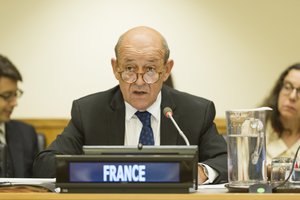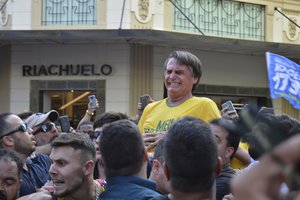
Phrase
In everyday speech, a phrase may be any group of words, often carrying a special idiomatic meaning; in this sense it is roughly synonymous with expression. In linguistic analysis, a phrase is a group of words (or possibly a single word) that functions as a constituent in the syntax of a sentence—a single unit within a grammatical hierarchy. A phrase appears within a clause, although it is also possible for a phrase to be a clause or to contain a clause within it.
Common and technical use
There is a difference between the common use of the term phrase and its technical use in linguistics. In common usage, a phrase is usually a group of words with some special idiomatic meaning or other significance, such as "all rights reserved", "economical with the truth", "kick the bucket", and the like. It may be a euphemism, a saying or proverb, a fixed expression, a figure of speech, etc.
In grammatical analysis, particularly in theories of syntax, a phrase is any group of words, or sometimes a single word, which plays a particular role within the grammatical structure of a sentence. It does not have to have any special meaning or significance, or even exist anywhere outside of the sentence being analyzed, but it must function there as a complete grammatical unit. For example, in the sentence Yesterday I saw an orange bird with a white neck, the words an orange bird with a white neck form what is called a noun phrase, or a determiner phrase in some theories, which functions as the object of the sentence.

Nurse (album)
Nurse was the first major label album released by the band Therapy?. It was released on 2 November 1992 on A&M Records. The album was mainly recorded at Loco Studio in Caerleon, Wales, apart from "Gone" which was recorded in Annamoe, Ireland. It marked a departure from the noise punk style of the two mini-albums, being a more industrial-sounding record. The album was rated favourably by critics and reached number 38 in the UK Albums Chart.
The album was released on 12" vinyl, CD and cassette. In the US, the album was released on limited edition red 12" vinyl, CD and cassette.
A remastered CD version of the album by the original producer, Harvey Birrell, was included in The Gemil Box, released on 18 November 2013.
Track listing
All songs written by Therapy?
Personnel
Peggy Anderson
Peggy Anderson (July 14, 1938 – January 17, 2016) was an American author and journalist, best known for her 1979 work Nurse, which profiled the work of a nurse and sold millions of copies.
Anderson was born in Oak Park, Illinois, in 1938, to Catherine Anderson, a nurse, and her husband Wilbert Anderson. She graduated from Augustana College in Rock Island, Illinois, and then joined the Peace Corps. While with the Peace Corps, she taught English for two years in the early 1960s in Togo. After her time in the Peace Corps, she worked as a reporter at The Washington Monthly and The Philadelphia Inquirer (from 1969-1973).
She wrote three well-known books: The Daughters (1972), about the Daughters of the American Revolution; Nurse (1979); and Children's Hospital (1985).
Nurse was a major best-seller. The book was an account of the working life of a nurse, based on an pseudonymized series of interviews with a 27-year-old nurse named Philadelphia. The book was made into a movie and a TV series starring Michael Learned, which won an Emmy award. It was suggested that she title the book "Scar Wars" (playing on the recent popularity of the film "Star Wars"), but Anderson stuck with the less sensationalistic title Nurse. The nurse, nicknamed "Mary Benjamin" in the book, at the time insisted on her anonymity, and "steadfastly protected her identity". She was later identified as Mary Fish and became a life-long friend of Anderson's. For the book, Fish received $2,000 and 5% of profits from the book, for meeting with Anderson for 60 interviews, of two to six hours each.
Nurse, Sindy Filmography
-
2015, role: actress , character name: Voodoo Woman
-
2013, role: actress , character name: Terry Raymond
-
2012, role: actress , character name: Immigration Officer
-
2011, role: actress , character name: Times Square Dancer
-
2010, role: actress , character name: Bar Patron
-
2010, role: actress , character name: Beverly Douglas
-
2009, role: actress , character name: Bar Patron

Sundowners
Break out the songs and we’ll sing along.
I’ve fallen for you.
Where did you come from? Where did you come from?
Our tiny towns and our basement sounds.
Pre-packaged for you.
Some never get here. Their loss is so clear.
And I always saw this happen.
I just never saw the route we’d take.
I always saw this happen.
I learned from your eyes and our mistakes.
We live in a fiction, too good to be true.
We’re the sundowners, all hours.
First to admit that we need you.
This small voice may be mocked by some,
but I’ve got electric speakers and cables, a mind and a sharp tongue.
Take off the crown. Burn down the throne.
Please understand that I only do this to feel less alone.
And I always saw this happen.
I just never saw the route we’d take.
I always saw this happen.
I learned from your eyes and our mistakes.

Phrase
In everyday speech, a phrase may be any group of words, often carrying a special idiomatic meaning; in this sense it is roughly synonymous with expression. In linguistic analysis, a phrase is a group of words (or possibly a single word) that functions as a constituent in the syntax of a sentence—a single unit within a grammatical hierarchy. A phrase appears within a clause, although it is also possible for a phrase to be a clause or to contain a clause within it.
Common and technical use
There is a difference between the common use of the term phrase and its technical use in linguistics. In common usage, a phrase is usually a group of words with some special idiomatic meaning or other significance, such as "all rights reserved", "economical with the truth", "kick the bucket", and the like. It may be a euphemism, a saying or proverb, a fixed expression, a figure of speech, etc.
In grammatical analysis, particularly in theories of syntax, a phrase is any group of words, or sometimes a single word, which plays a particular role within the grammatical structure of a sentence. It does not have to have any special meaning or significance, or even exist anywhere outside of the sentence being analyzed, but it must function there as a complete grammatical unit. For example, in the sentence Yesterday I saw an orange bird with a white neck, the words an orange bird with a white neck form what is called a noun phrase, or a determiner phrase in some theories, which functions as the object of the sentence.
Latest News for: sindy nurse
- 1




















